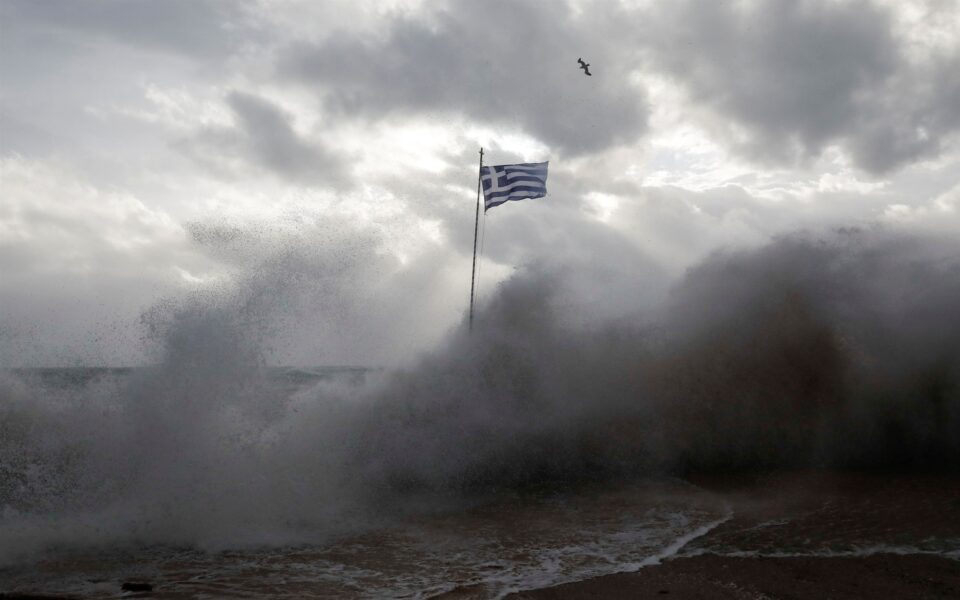Wiretapping and the integrity of the nation

The tapping of conversations involving the current leader of Greece’s PASOK party is a matter of the utmost gravity. Not only for the political developments it has set in motion, but also for the profound malaise it reveals. It would be useful to know on what grounds the surveillance of a democratic politician was ordered. Not because the office of parliamentarian should automatically confer immunity (the Greek Parliament has hosted the far-right Golden Dawn, later found guilty in court of running a criminal organization); but because lifting the constitutional protection provided for fundamental rights must be subject to the most stringent guarantees of proportionality and can only be justified by exceptional factors relating to national security.
The issue must therefore be investigated systematically, from every angle, and with the seriousness it warrants. But while the investigation is under way, the national dialogue must not be allowed to degenerate into a vicious circle revolving toxically around this single issue, because the urgent challenges facing Greece (security, the economic and energy crisis, asymmetric threats and climate change) require a focus on governance, not on polarizing mudslinging, which serves ulterior political motives, but not the country’s interests.
If we really want the next day to find Greece with combat-ready national intelligence services and functional guarantees of the rule of law, we must approach the issue via its structural and long-term dimensions. The breaking of the scandal should serve as a catalyst that mobilizes institutional provisions and procedures designed to better balance security against rights; and proposals are already being drawn up from various sources, including the political parties. If we want something good to come out of all this, that is where the debate needs to focus.
There’s also the press dimension. The case was brought to light thanks to independent investigative journalism. Greece does not suffer from a lack of freedom of the media. Instead, the problem is the interdependence of political and private interests, which reduces the independence of media organizations and biases their approach on certain crucial matters. And while this is not just a Greek problem – Murdoch is still making and breaking political careers across the English-speaking world – it does impinge on the quality of our democracy.
Independent journalists should not be vilified by the political authorities and subjected to ad hominem attacks simply for doing their job. At the same time, the ease with which sections of the international press overdramatize, oversimplify and generalize should also concern us. For Greece is often viewed through a peculiarly orientalizing lens: not as a complex European society, with all its tensions and contradictions, the fraught coexistence of state power and individual rights, the faults and abuses that so often go hand in hand with democracy, but rather as a nation condemned to affirming extreme stereotypes – positive but usually negative – that are imposed on it.
Building on the huge and painful adjustment of the previous decade, the country has begun to mold a positive international brand in recent years. An image which is now being capitalized on to the benefit of Greek society in the form of international support, of influence in Brussels, Berlin and Washington, of investment flows, jobs and stability, and of increased self-confidence on the part of the Greeks.
However, a narrative is now being nurtured, attractive to international media outlets that gravitate towards easily digested stories and dramatic twists: a narrative that views Greece’s achievements as the exception that proves the rule; that says the country has simply been a free rider of surrounding circumstances, a spoiled, failing nation whose “rotten” leaders condemn it to toil like Sisyphus, forever to no avail; that it is only a matter of time before Greece reveals its true “dark nature” once again.
The stakes are now so high for Greece, they transcend party rivalry and even outweigh the need for governmental stability before and after the upcoming general elections. Treating Greece as a hopeless persistent offender which, despite temporary flashes in the pan, is ultimately incapable of escaping its past is an insult to the Greek people and fails totally to do justice to 12 years of arduous adjustment under successive austerity programs. To efforts orchestrated by the series of governments (PASOK, New Democracy, SYRIZA) which did not shy away from their responsibility to the nation, signing and implementing austere bailout programs to prevent the worst from happening and to keep Greece alive. Greece is not a failed state, not Orban’s Mediterranean cousin, not ruled by a criminal gang. This toxic polarization must end. Even more than political stability, the nation’s dignity is at stake.
George Pagoulatos is a professor at the Athens University of Economics & Business and director general of the Hellenic Foundation for European & Foreign Policy (ELIAMEP).





